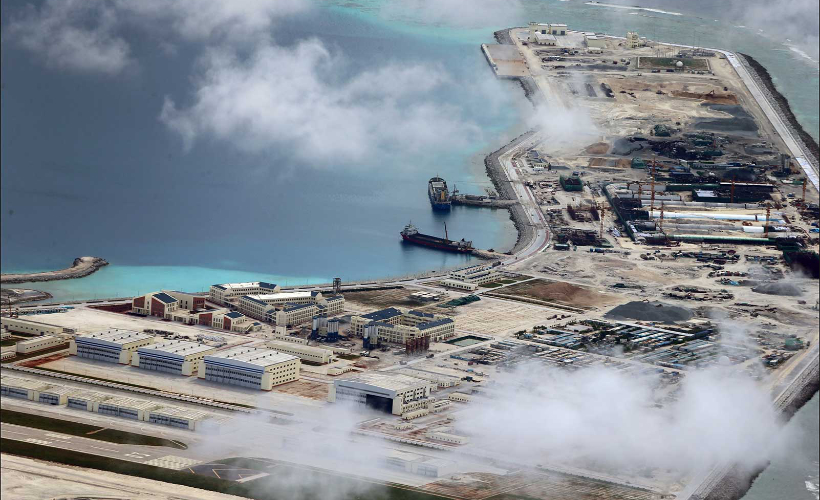Philippines feel helpless as China completes South China Sea development

“What do they want us to do?”
This was the rhetorical question from a government spokesperson at a press conference at the Filipino presidential residence, on February 5. Rappler, a Manila-based news organization that has recently faced pressure from the government, says he was responding to critics of the government’s inaction.
- He sought to portray the island nation as “helpless in the face of China’s continued construction on Panganiban Reef (Mischief Reef).” The Chinese call the atoll Meiji Jiao (美济礁 měijì jiāo) and occupy it, but it is claimed by the Philippines.
- “I think whether or not we like it, [China] intended to use them as military bases. So, what do you want us to say? All that we could do is to extract a promise from China not to reclaim any new artificial islands,” added the exasperated spokesperson.
- This is not the first time in 2018 that Filipino government officials have sought to downplay China’s military buildup in disputed waters: Rappler notes that on January 8, Defense Secretary Delfin Lorenzana had insisted that “the Chinese government said some time ago that they are not going to militarize those reclaimed islands,” and that “if it is true and we can prove that they have been putting soldiers and weapons, then it will be a violation of what they said.”
- The Philippine Daily Inquirer says it now has proof: photographs obtained “from a source” and published on February 5. The aerial photos were reportedly taken between June and December 2017 and show “seven reefs claimed by the Philippines in the Spratly archipelago” being “transformed into artificial islands in the final stages of development as air and naval bases.”
- “This is the most complete, detailed batch of aerial pics available of China’s SCS military outposts,” tweeted Bonnie Glaser, a D.C.-based expert on Asia-Pacific security.
Other recent developments in the South China Sea:
- The acting assistant secretary of state for political-military affairs for the U.S. State Department “encouraged members of the Association of Southeast Asian Nations (ASEAN) to uphold freedom of navigation in the South China Sea,” according to SCMP.
- But as we noted in our The China Project Red Paper, the outlook is dim for pushback against Chinese interests in the South China Sea, as by the end of the year, more than a few countries in the region conspicuously stopped criticizing China’s development of ocean reefs.






